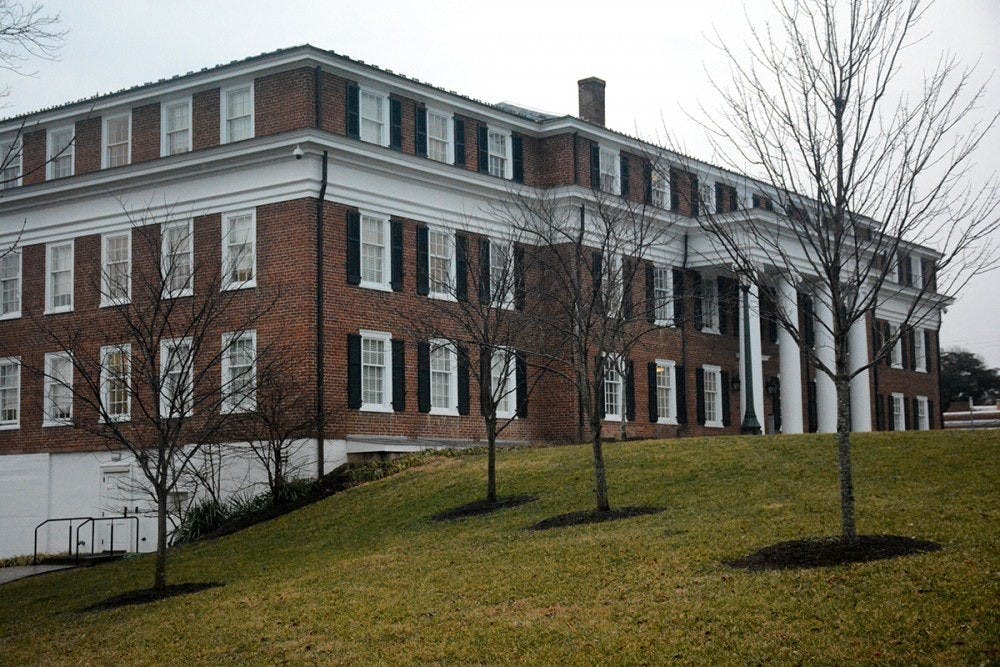Last month, University President Ryan distributed an electronic survey to students concerning sexual assault and sexual misconduct on Grounds. This is the third climate survey that the administration has sent out to students, following similar surveys dispersed in both 2015 and 2017. Students at the University — which is one of only 33 members of the Association of American Universities to participate in the 2019 Campus Climate Survey on Sexual Assault and Sexual Misconduct — are in a unique position to provide vital feedback about critical policies and procedures on Grounds.
The Association of American Universities, an organization of top research universities in the United States and Canada, distributed this survey to 33 of its members, including U.Va. The AAU is dedicated to finding comprehensive solutions to sexual assault and misconduct on college campuses. Specifically, the organization notes that this issue, “disproportionately affects college women and impedes their ability to participate fully in campus life.” This hinders upon educational equity, because those at risk of sexual violence may have to place their physical and mental safety before their academic lives.
In 2015, only 25.5 percent of undergraduates and 28.8 percent of graduate students responded to the survey. There was an increase in response rates in the 2017 report, with 55.9 percent of undergraduate and 50.9 graduate responses. While this is an impressive increase, having more student input for the 2019 survey will only improve the new policies with which the University can respond. Despite the response rate, the survey illustrates doubt in University officials to handle these types of cases.
According to the 2017 report, only 12 percent of undergraduate female students answered that it is “extremely likely” that “University officials would conduct a fair investigation” in the case of a sexual assault/misconduct report. Furthermore, only eight percent of undergraduate female students answered that it is extremely likely that “University officials would take action against the offender(s).” This feedback reflects a lack of confidence in University officials concerning sexual assault and misconduct cases. These statistics are particularly concerning considering that only 20 percent of college-age women report sexual violence to law enforcement and only 32 percent of non-female college-age individuals make these reports.
Emily Babb, assistant vice president for Title IX Compliance and Title IX coordinator, finds that the surveys have done a lot to help the office improve its policies and procedures. The Title IX office deals with cases related to “sexual and gender-based harassment and other forms of interpersonal violence.” During a flash seminar on sexual misconduct policies in October 2018, Babb expressed optimism at the positive trend when comparing the data results from the 2015 and 2017 climate survey reports. Not only was there an increase in the number of students who answered that it is “likely” or “extremely likely” to be supported by other students if they were to make a report, but Babb reported that the percentage of students that felt sexual misconduct is a significant problem on Grounds fell between 2015 and 2017.
Babb looked to the improvements that the Title IX office has made as a potential reason for these optimistic statistics. For example, the office has implemented in person trainings for students and employees. These programs coincide with the AAU’s recommendations on how university staffs can help prevent and deal with sexual assault on campuses. For example, the AAU recommends that schools have Title IX coordinators and that their offices create mandatory staff training programs. Nevertheless, the 2019 climate survey hopes to shine light on both the accessibility of these programs and students’ knowledge about the resources available to them through the University and Title IX office.
Sexual assault and misconduct are extremely pertinent issues, especially for college students. The University should be commended for its strives to elicit feedback about its role in the prevention and handling of cases involving these matters, but these attempts will make no tangible difference without student input. Participating in this survey not only aids the University improve the programs it has in place, but it makes a positive impact on those on Grounds who may benefit from both prevention and trauma-aid programs.
Victoria McKelvey is an Opinion Columnist for The Cavalier Daily. She can be reached at opinion@cavalierdaily.com.





